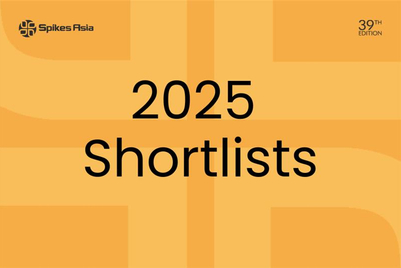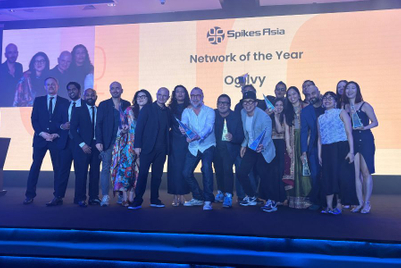.jpg&h=570&w=855&q=100&v=20250320&c=1)
Spikes Asia is where the best of APAC creativity is celebrated, and for Korean independent agency Ideot, this was a key moment to shine when it picked up two Bronze Spikes in the Direct and Outdoor categories in 2024 for 'Park O'Clock', a campaign for Korea EV brand Pluglink.
We spoke with Seung-jae Lee, Ideot's chief creative officer and 2025 Direct and Outdoor juror, to discover why Park O’Clock achieved success in South Korea, how solving their customers’ pain points proved to be an effective approach to driving growth for their client’s brand, what winning a Spike means to them as an independent agency, and more.
Why did you prioritise entering Park O’Clock into Spikes Asia 2024?
Spikes Asia is the leading festival and awards show celebrating creativity and innovation in advertising and marketing in the Asia Pacific region. As a Korean agency, we wanted to look beyond our home country and have our work judged on Asia's biggest stage.
How did your success at Spikes Asia impact the team and wider business?
It was really helpful from a variety of perspectives. Most importantly, it was a great motivator for our team members, increasing their confidence and trust in their creativity, which had a positive impact on their job satisfaction and team productivity. It has also become the most effective way to convey trust in our new business. As you can see, winning a Spikes Asia award has a positive impact on your career and business, as it recognises your skills and makes you an important asset to help the company grow.
Why do you think 'Park O’Clock' achieved success in South Korea?
The campaign's success in South Korea is due to the fact that it accurately reflects the parking challenges and characteristics of Korean drivers. Sixty percent of South Koreans live in apartments. However, compared to the average number of cars people own, the parking spaces provided in apartments are far too small. As a result, people are forced to double-park, causing extreme stress and conflict. The campaign was well-received because it presented an effective solution to this real-life problem in a very simple manner: Let's let each other know when it's time to leave.
How important was the cultural context behind this work and how did you ensure the diverse jury understood it?
The campaign found and solved a business reason for the brand's lack of growth: The lack of parking spaces in Korean society. If we had just created an ad that touted the benefits of the brand without considering this social context, we would have never been able to achieve this. To resonate with the judges, we emphasised the problem at the beginning of the video.
How did you convince your client that this would work?
While the ad doesn't directly sell the merits of the brand, it does convince Koreans that it will be a brand they can get behind. After all, Koreans can relate to these cultural pain points.
What did you learn while creating 'Park O’Clock' and how will it impact your approach to future projects?
We felt it was important to solve a problem in the customer journey. When we look at the context of the society in which our brands are consumed, we find new problems that we didn't see before. If you can solve these problems, you can drive much greater revenue growth. And we learned that creating ads that have never been seen before can set a great precedent for consumers and agencies alike.
What can other markets learn from Korean creativity?
With one of the highest internet and smartphone penetration rates in the world, South Korea has a wealth of market experience in digital and mobile advertising, with particular strengths in media freedom and integrated connectivity online and offline.
What does winning a Spike mean to you as an independent agency?
It was a great opportunity to showcase a small Korean company to the world. In the advertising industry, the size of the idea is much more important than the size of the company.
What advice would you give to other Korean agencies considering entering Spikes Asia, especially independent ones?
Be sure to enter. We're professionals. And when you're a pro, you strive to be the best in the world and prove it.
Ready to enter? Get started on your Spikes Asia Awards entry journey here.


.jpg&h=334&w=500&q=100&v=20250320&c=1)



.png&h=334&w=500&q=100&v=20250320&c=1)

.png&h=334&w=500&q=100&v=20250320&c=1)

.png&h=334&w=500&q=100&v=20250320&c=1)





.jpg&h=268&w=401&q=100&v=20250320&c=1)
.png&h=268&w=401&q=100&v=20250320&c=1)

